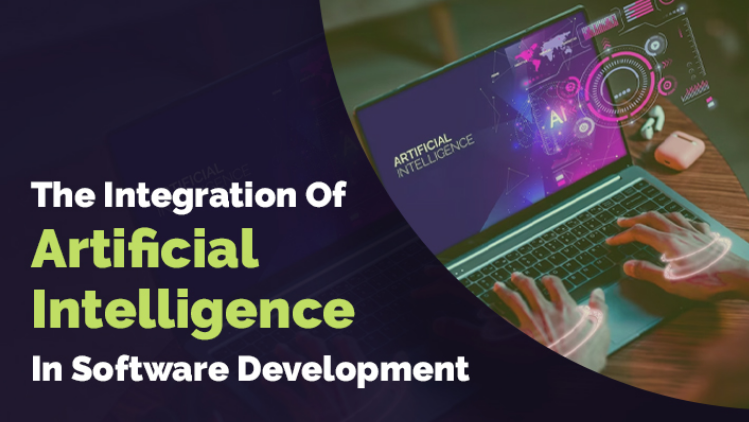Introduction:
In the fast-evolving landscape of technology, organizations are increasingly turning to Artificial Intelligence (AI) to revolutionize various aspects of their operations. One significant area witnessing a paradigm shift is software development. This comprehensive exploration delves into the ways organizations are implementing AI in software development, examining the challenges, benefits, and future implications of this transformative trend.
Looking for the best Looking for the best AI design tools?Take the guesswork out of finding the best of the best when the Service List has it all to help you narrow down your choices. AI services reviews
I. The Role of AI in Software Development:
a. Automated Code Generation:
Discuss how AI is streamlining the coding process through automated code generation.
Explore the impact on efficiency, accuracy, and time-to-market for software products.
b. Enhanced Debugging and Testing:
Analyze how AI-powered tools are improving debugging and testing processes.
Highlight the role of AI in identifying and fixing errors, leading to higher-quality software.
c. Predictive Analysis for Project Management:
Examine how AI is utilized for predictive analysis in project management.
Explore how AI algorithms can forecast potential roadblocks, allowing for proactive resolution.
II. Challenges in Implementing AI in Software Development:
a. Data Security and Privacy Concerns:
Discuss the challenges associated with securing sensitive data when implementing AI in software development.
Explore strategies for mitigating risks and ensuring compliance with data protection regulations.
b. Skill Gap and Workforce Training:
Address the shortage of AI-skilled professionals in the software development industry.
Explore initiatives for workforce training and upskilling to bridge the gap.
c. Integration with Existing Systems:
Analyze the difficulties organizations face when integrating AI with their existing software development infrastructure.
Discuss strategies for seamless integration and minimizing disruptions.
III. The Benefits of AI in Software Development:
a. Increased Efficiency and Productivity:
Examine how AI is boosting efficiency by automating routine tasks, allowing developers to focus on more complex challenges.
Explore case studies illustrating increased productivity through AI implementation.
b. Quality Improvement:
Discuss how AI contributes to software quality improvement by identifying and fixing errors during the development process.
Explore real-world examples showcasing enhanced software quality through AI.
c. Cost Savings:
Analyze how AI is contributing to cost savings in software development.
Explore the long-term financial benefits of leveraging AI tools in various stages of development.
IV. AI in Software Development Lifecycle:
a. Requirements Gathering and Analysis:
Explore how AI algorithms assist in analyzing project requirements and optimizing the planning phase.
Discuss tools that aid in the early identification of potential challenges.
b. Design and Development:
Analyze the role of AI in the design and development phases of software projects.
Discuss how AI facilitates the creation of more user-centric and efficient software solutions.
c. Testing and Deployment:
Examine the use of AI in testing scenarios and ensuring software robustness.
Discuss AI-driven deployment strategies that enhance user experience and minimize downtime.
d. Maintenance and Updates:
Explore how AI streamlines maintenance processes by predicting potential issues and recommending updates.
Discuss the role of AI in ensuring the long-term sustainability of software applications.
V. Future Implications and Trends:
a. AI-Driven DevOps:
Discuss the integration of AI in DevOps practices for continuous improvement and faster delivery.
Explore emerging trends in AI-DevOps synergy.
b. Explainable AI in Software Development:
Analyze the importance of explainable AI in software development for transparency and trust.
Discuss ongoing research and developments in making AI algorithms more understandable.
c. AI-Powered Collaboration:
Explore how AI is fostering collaboration among software development teams.
Discuss tools and platforms that enhance teamwork and communication through AI.
d. Ethical Considerations in AI Development:
Address the ethical implications of AI in software development.
Discuss frameworks and guidelines for ensuring responsible and ethical AI practices.
VI. Case Studies:
a. Google's AutoML:
Explore how Google's AutoML is revolutionizing the creation of machine learning models for various applications.
b. Microsoft's Visual Studio IntelliCode:
Discuss how Microsoft's Visual Studio IntelliCode uses AI to enhance coding productivity and suggest improvements.
c. OpenAI's Codex:
Examine the impact of OpenAI's Codex in transforming code generation through natural language instructions.
Conclusion:
In conclusion, the integration of AI in software development is reshaping the industry, offering unprecedented opportunities and challenges. As organizations continue to embrace AI-driven solutions, it is crucial to address the associated challenges while leveraging the myriad benefits. The future holds immense potential for innovative applications of AI in every phase of the software development lifecycle, paving the way for a more efficient, reliable, and user-centric software landscape.














Post Comments